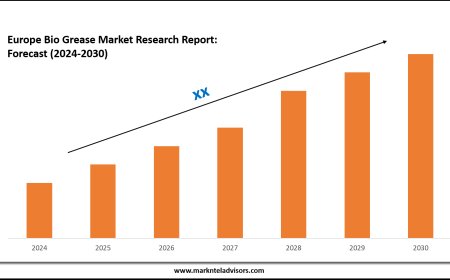Agricultural Fuel Oil in the UK: Powering the Heart of British Farming

Agriculture is the backbone of rural Britain, supporting food production, employment, and stewardship of the countryside. At the heart of this vital industry lies an essential, yet often overlooked, component: agricultural fuel oil. Known in the UK as red diesel, this specialised fuel powers much of the machinery and equipment that keeps British farms operating efficiently.
What is Agricultural Fuel Oil?
Agricultural fuel oilcommonly referred to in the UK as red diesel or rebated gas oilis a type of diesel fuel that has a lower rate of tax than standard road diesel (white diesel). To differentiate it, red diesel is dyed with a red marker and contains a chemical tracer, making it easily identifiable during inspections.
The purpose of this fuel is to provide a cost-effective energy source for specific, non-road usesprimarily in agriculture, forestry, and horticulture.
Uses on British Farms
Red diesel is essential for modern British agriculture. It is used to power:
-
Tractors and combine harvesters
-
Seeders, sprayers, and ploughing equipment
-
Irrigation systems and water pumps
-
Grain dryers, heaters, and backup generators
-
Farm-based transport (not used on public roads)
These applications are critical for planting, maintaining, and harvesting crops, as well as for livestock care and general farm operations.
Legal and Tax Framework
In the UK, red diesel is subject to rebated duty, meaning it is taxed at a much lower rate than road diesel. However, its use is strictly regulated.
Who Can Use It?
As of April 2022, the UK government significantly narrowed the permitted uses of red diesel to encourage fuel efficiency and reduce carbon emissions. However, farmers retained the right to use red diesel for:
-
Agricultural operations
-
Forestry and horticulture
-
Maintaining agricultural land and transport between farms
-
Vehicles and equipment used off-road or on private land
Using red diesel for unauthorised purposessuch as construction, road transport, or heating commercial buildingscan result in severe penalties, including fines and vehicle seizure by HMRC.
Supply and Storage
Agricultural fuel oil is supplied by a wide range of UK fuel distributors, such as:
-
Certas Energy
-
Crown Oil
-
Watson Fuels
-
Rix Petroleum
-
Goff Petroleum
These suppliers deliver red diesel in bulk to farms, often offering scheduled deliveries, emergency refuelling, and fuel management solutions.
Farms must comply with fuel storage regulations, including secure bunded tanks, spill containment systems, and environmental protection measures. These rules help prevent soil and water contamination and align with the Environment Agencys guidelines.
Environmental Concerns and Alternatives
While red diesel remains a critical fuel for agriculture, it is a fossil fuel and a significant source of carbon emissions. In light of the UKs commitment to achieving net-zero emissions by 2050, there is growing pressure to explore cleaner alternatives.
Emerging Alternatives:
-
HVO (Hydrotreated Vegetable Oil): A renewable diesel substitute with lower emissions and similar performance to red diesel.
-
Biodiesel blends: Used in some farm vehicles but less common due to compatibility concerns.
-
Electric and hybrid machinery: Suitable for smaller-scale operations but not yet widespread for heavy-duty farm use.
-
Hydrogen fuel cells: Still in early development but could offer a long-term solution for zero-emission farming.
In addition, many farms are adopting renewable energy technologiessuch as solar panels, anaerobic digesters, and wind turbinesto reduce reliance on diesel altogether.
The Future of Agricultural Fuel Oil in the UK
Despite environmental concerns, red diesel remains a crucial lifeline for UK farmers, particularly those in remote or rural areas where alternative fuels are not yet viable. However, government policy, market pressures, and technological innovation are likely to reshape its role in the years ahead.
The future may see a gradual transition from red diesel to cleaner fuels, supported by grants, incentives, and infrastructure development. In the meantime, farmers are encouraged to improve fuel efficiency, invest in cleaner technologies where possible, and remain compliant with legal usage rules.
Conclusion
Agricultural fuel oilred dieselcontinues to play a central role in sustaining British agriculture. It powers the machinery that feeds the nation and supports the livelihoods of thousands of farmers across the UK. As the sector faces increasing pressure to decarbonise, the challenge lies in balancing productivity with sustainability. For now, red diesel remains indispensablebut the future is undoubtedly greener.



































